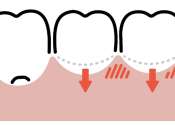Fibroblasts could provide new target for treatment of rheumatoid arthritis
A study led by researchers at the University of Birmingham reveals the key role of different types of fibroblast cells in the development of rheumatoid arthritis (RA), opening up a new avenue for research into treatment of ...
Nov 23, 2016
0
475








